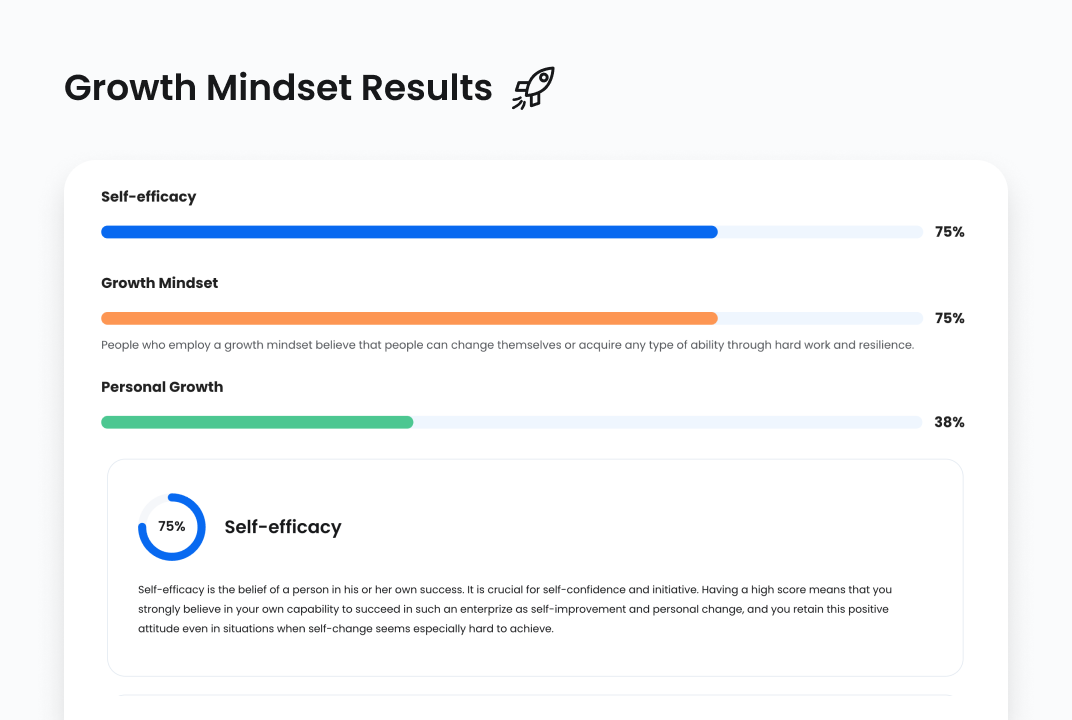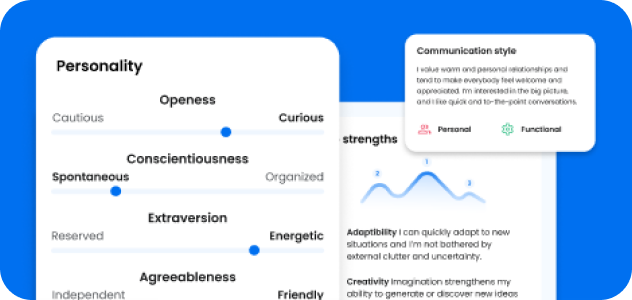Growth Mindset Quiz

Scientific assessments, with this quiz inspired by Carol Dweck’s theory.
Benefits
Gyfted’s free online self-efficacy assessment provides you with insights into your self-belief and determination to succeed. You will be able to better understand whether you are a hardworking person who likes to embrace challenges.
Why is this of value to me?
How you can use this test?
How it works?
you’re at ease, undisturbed
and ready to focus.
you through the process. It’s
easy - just go with your gut
feeling.
you will receive your
feedback immediately
anyone, with just a click of a
button
What's Inside? Get immediate feedback by measuring these traits in you
Growth Mindset Quiz
Assessment Insights
Scientific and Empirical Foundations
Origin of the growth mindset concept: Dweck, C. S. (2006). Mindset: The new psychology of success. New York, NY: Random House. Measurement of growth mindset: Dweck, C. S., Chiu, C., & Hong, Y. (1995). Implicit theories and their role in judgments and reactions: A word from two perspectives. Psychological Inquiry, 6(4), 267-285. Growth mindset and resilience: Yeager, D. S., & Dweck, C. S. (2012). Mindsets that promote resilience: When students believe that personal characteristics can be developed. Educational Psychologist, 47(4), 302-314. Growth mindset and motivation: Blackwell, L. S., Trzesniewski, K. H., & Dweck, C. S. (2007). Implicit theories of intelligence predict achievement across an adolescent transition: A longitudinal study and an intervention. Child Development, 78(1), 246-263. Growth mindset in the workplace: Heslin, P. A., & VandeWalle, D. (2008). Managers' implicit assumptions about personnel. Current Directions in Psychological Science, 17(3), 219-223. Growth mindset in teams: Murphy, M. C., & Dweck, C. S. (2010). A culture of genius: How an organization's lay theory shapes people's cognition, affect, and behavior. Personality and Social Psychology Bulletin, 36(3), 283-296. Growth mindset in sports: Cury, F., Da Fonseca, D., Rufo, M., & Sarrazin, P. (2002). Perceptions of competence, implicit theory of ability, perception of motivational climate, and achievement goals: A test of the trichotomous conceptualization of endorsement of achievement motivation in the physical education setting. Perceptual and Motor Skills, 95(1), 233-244.


